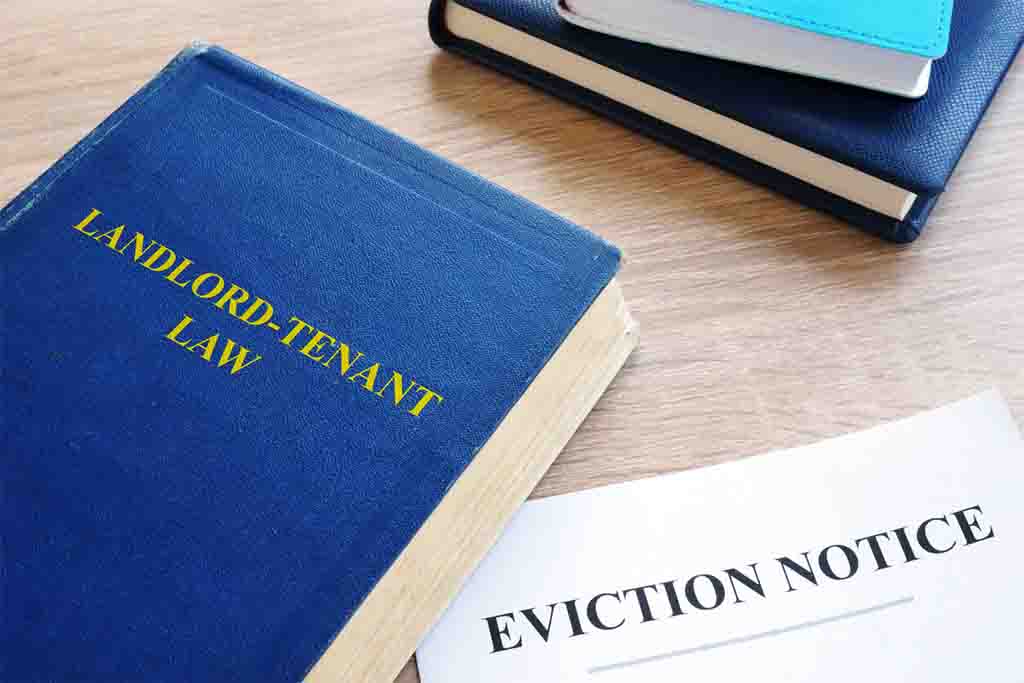Legal jargon has earned a reputation among the initiated as well as among the common population for a good reason. Attorneys, paralegals and lawyers have a daunting list of industry terms that oscillate between common vernacular and some of the last handholds Latin phrases have in the modern world.
Several terms have surfaced within public consciousness this year between various court cases, governmental changes and economic crises. Here’s a short rundown on 10 legal terms relevant to 2020 to brush up on and keep you going strong through the end of the year.
1. Stare Decisis
Stare decisis is a Latin term meaning “to stand by things decided.” In essence, it is the doctrine that courts should follow precedence or the rulings of previous courts when making a determination on a similar case. This principle underlies the hieratic nature of the U.S. court system wherein higher court rulings should be the model for lower cases in lower courts. This rule of precedent is one that has previously guided the Supreme Court to not overturn rulings on previous cases unless there are “strong grounds” to do so.
The term is particularly relevant this year due to the appointment of Amy Coney Barrett to the Supreme Court. Barrett has written about stare decisis and how it intertwines with precedent, jurisprudential disagreements, and constitutional interpretation methodologies. In her opinion, it serves as a mediating force in disputes that can hinder the Supreme Court’s ability to reinforce constitutional precedent. Her writing and proclivity towards constitutional originalism came up several times during her nomination hearing.
2. Discovery and E-Discovery
The second term is one that should always be top-of mind for anyone involved in litigation. Discovery is the exchange and processing of information between two parties in a legal case. It is a method for enforcing an equitable court process by making both parties aware of the evidence and potential testimony that will be presented during the trail. The process limits surprises and allows both parties to prepare reasonable counter arguments. There are different kinds of discovery, which differ by court. In family court, discovery can include interrogatories, document requests, subpoenas duces tecum and mental examinations. E-discovery is the digital version of discovery that utilizes digital data collection, reporting and processing. E-discovery has become increasingly common in the digital age and the remote nature of work in 2020 has only increased its application. Find out more on e-discovery in our exploration of legal tech terms.
3. Hearsay
Hearsay is a statement made outside of a court that is presented as a means of proving or disproving an assertion. Hearsay evidence is largely not admissible in a trial, to limit the sway gossip could have over court proceedings. It is evidence for which there is no witness available to testify, something that can only be corroborated by second-hand accounts. Federal law lays out the rules for hearsay, including the limited forms of hearsay allowed as evidence within a trial. The exemptions to this are found in rule 803 of the FRE.
Hearsay found relevancy during Trump’s impeachment trial early in the year and circled back into view the week of the presidential election, when the Trump administration filed lawsuits within Michigan courts contesting practices around poll watchers. Judge Cynthia Stephens was quoted saying: “What I have is, at best, a hearsay affidavit that addresses a harm that would be significant,” said Judge Cynthia Stephens. “We’ve got an affidavit that is not first-hand knowledge.”
4. Law and Litigation
Law is the system of rules that govern a society or collective. Legal refers to a relationship to the law. Legal actions often take the form of lawsuits, which are key drivers in litigation. Litigation is a dispute resolution process in the court system. It involves questions of law and determines if a complaint is valid. Valid complaints result in the court passing a verdict or judgement, resulting in punishment or the payment of damages to the plaintiff. The process is bound by the law as well as the rules of the courts. When describing processes related to litigation, or an inclination towards engaging in lawsuits, the word “litigious” may be used.
5. E-filing
In the world of litigation, it is necessary to file documents, placing them into the public record through proper submission to a court. Slowly, courts have begun to accept documents in a digital format and have created or adopted systems for collecting and processing those files. E-filing, or the electronic filing of court documents has seen a jump in adoption this year due to the social distancing and large-scale shutdowns driven by the COVID-19 pandemic.
Proponents of e-filing are hopeful that this forced adoption holds after the pandemic slows down and “normal” court practices can resume. One of the largest misconceptions about e-filing is that it is simple, according to Kimberly Kent, Supervisor of the E-filing team at ABC Legal Services. Due to the sporadic adoption of e-filing and the particular nature of courts and their e-filing systems, e-filing correctly can be challenging. Third parties such as ABC Legal Services are specialized in e-filing and can file large volume requests on behalf of firms or one-off filings for individuals.
 6. Eviction, Foreclosure, and Moratorium
6. Eviction, Foreclosure, and Moratorium
The pandemic has profoundly affected lives and livelihoods this year. With so many businesses shut down or limited, many are struggling to make housing payments. Discussions around evictions, foreclosures, and moratoriums have become commonplace. Eviction is the process of removing a tenant from a property. It applies especially to the rental market and apartments. Foreclosure is the process undertaken by a lender to force the sale of an asset (often a property or home) in the hopes of recovering some of the balance remaining from a defaulted loan. This is often applicable to those who cannot repay their mortgage.
Over the course of this year, various governmental bodies including Congress have enacted legislation to curtail the economic impact of the virus. The most common measure has been the enactment of moratoriums, at both the national and state levels. Moratoriums are temporary suspensions of an activity. In legal applications, this refers to the suspension of payments towards a debt. Moratoriums enacted by the FHA, FHFA, and CDC are currently in place and prevent a large number of evictions, but their protections only last until the end of the year. Homeowners and renters will be expected to repay all missed payments at the end of the moratoriums. Unless they are extended or some form of relief or forgiveness is granted, there will be a dramatic rise in eviction in 2021.
7. Service of Process
Service of process is the act of alerting all parties to their involvement in a legal proceeding or lawsuit. It involves providing legal documents to all defendants listed on a petition or complaint. Papers must be served by an unbiased third party, appropriate law officer, or a process server. Learn more about service of process and process servers on this Between the Lines post.
Service of process is one portion of the legal process without a current and viable digital replacement. Legal documents need to physically be delivered to defendants. While many courts shut down early in 2020 due to the pandemic, documents still needed to be served. As courts began to reopen or utilize digital methods for proceedings, finding ways to safely implement service of process became vital. ABC Legal Services released a series of protocols for process servers to ensure safety and compliance with social distancing practices while serving legal documents through COVID-19.
8. Bankruptcy and Fresh Start
Bankruptcy is a declaration that a debtor can no longer repay debts. After declaring bankruptcy, individuals or businesses will either liquidate their assets or create a plan for repaying the balance of the debt. Bankruptcy is declared in accordance with an applicable chapter in the US Bankruptcy Code (Title 11 of the United States Code). Chapter 7 applies to asset liquidation for individuals and businesses. Chapter 7 can discharge debts for individuals, removing liability for the debts and giving them a “fresh start”. With a fresh start, debtors will be able to rebuild their credit scores, although the debt is not removed from a credit report.
Chapters 11 and 13 apply to debt adjustment based on reorganization for businesses and individuals respectively. Numerous businesses have filed for Chapter 11 bankruptcy in 2020 from retailers such as J.C. Penney and Pier 1 Imports to restaurant chains including Wendy’s, IHOP, and Logan’s Roadhouse. After filing Chapter 11 bankruptcy an automatic stay is put in place preventing debt collection and giving the business time for reorganization and trimming designed to realign the profitability of the business. As businesses continue to see fluctuations in their earnings due to the pandemic, more bankruptcy cases will come through the courts.
9. Due Process
Due process is one of the fundamental and cherished rights provided to U.S. citizens by the Constitution of the United States. The 5th and 14th amendments guarantee due process under federal and state law. It is the right to not be deprived of one’s right to life, liberty or property without undergoing a legal process, most often a trial. Citizens must be made aware if rights are to be taken away and given an opportunity to act within the legal system. Due process provides a check on the government, preventing it from acting outside the law against the citizens in a nation. Procedural due process is the process of “fair procedures” that must be observed in civil and criminal cases. Judge Henry Friendly’s list of procedures that are relevant to due process are often cited as standards for evaluating fairness.
10. Credibility and Ad Hominem
Credibility is a commonplace term whose definition transcends its legal application. Within the legal realm specifically, it refers to the believability of an account or witness. Credibility is subjective; it's a sentiment determined by the interpretation of the people present in the court and their willingness to believe what is being said based on the witness or evidence at hand. A witness’ credibility can make or break a weak case.
Ad hominem is a Latin phrase short for argumentum ad hominem, a logical fallacy. It refers to arguments attacking a person’s character rather than having true relevance to a case. The point of ad hominem arguments is to undermine the credibility of a witness or defendant. It is a personal rather than logical argument that can sway the opinion of the court and cause doubt. “Ad hominem” has made its way through courts and politics this year, from tweets and debates to court cases and hearings.
Top of Mind Legal Terms in 2020
Legal terms have popped up in 2020 legal proceedings and bounced around the public’s awareness as economic and political tensions continue to rise and swing. From justices dealing with concepts of precedent to a nation dealing with serious personal and business-related debt, 2020 has put a spotlight on the legal side of life. Let us know if you can think of any other legal terms that have made their way to the top of your list this year within the industry or general conversation.
"Between the Lines" is meant to inform and empower your decisions around legal services and legal technology. Subscribe to the blog to stay up-to-date on legal news and legal technology and tune in here to learn more about best practices for legal practices today as well as ABC Legal Services’ products.
About ABC Legal Services
ABC Legal is the nation’s leading service of process and court filing company and is the official process server to the U.S. Department of Justice. Docketly is a subsidiary of ABC Legal, providing appearance counsel on a digital, custom-built platform that smoothly integrates with our applications and services. ABC Legal’s applications are cloud-based and compatible for use on desktop, browser, and smartphones. Our solutions and digital approach ensure process server partners, law firm customers, and their clients save valuable time and resources when serving legal notices safely and with maximum compliance, control, and transparency. ABC Legal is based in Seattle, WA, with more than 2,000 process servers throughout the U.S., as well as internationally in more than 75 countries. To learn more about ABC Legal, our solutions, and subsidiary company Docketly, visit www.abclegal.com.

Written by
Heather ThomasService made simple—down the road and across the country. Join the 50,000+ professionals who trust ABC Legal for service of process.








